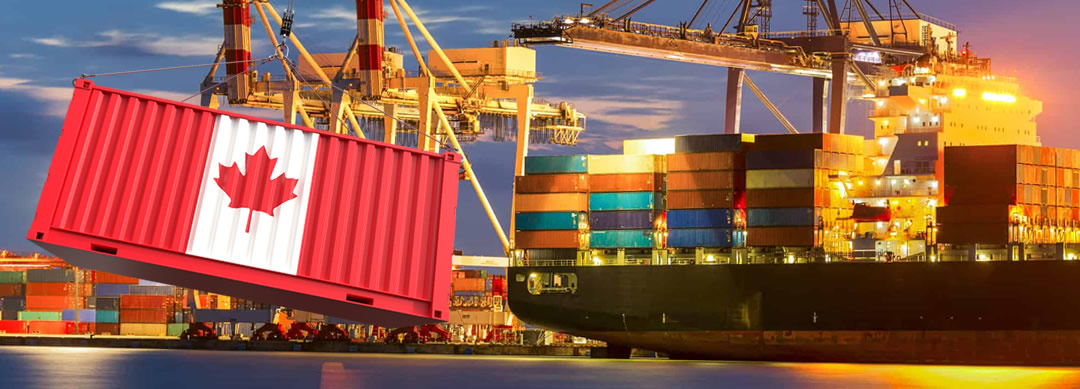Water scarcity crisis highlights importance of Canadian smart technology adoption
By Sérgio Siscaro
With the possibility of interruptions in the supply of electricity on the horizon, due to the current scenario of water scarcity in the country, Brazil may have a valuable ally in Canada – not only to attract the investments needed to modernize the Brazilian energy sector but, above all, by the incorporation of modern technologies that enable a more rational use of electric energy.
The similarities between Brazil and Canada regarding the predominance in the use of energy generated from hydroelectric plants – in both countries this source corresponds to about 60% of the energy matrix -, as well as the similarities in terms of territory (countries of dimensions continental, containing areas more isolated from the central regions), make the challenges faced are also similar. Thus, solutions developed in Canada make sense for the Brazilian reality – and can contribute to raising the level of energy efficiency in the country.
According to the Trade Commissioner Officer, Energy, at the Consulate General of Canada in Rio de Janeiro, Laura Tarouquela Netto, due to its dimensions and the fact that it has a challenging climate (which increases energy consumption through the use of electric heaters, for example), Canada was led to develop technologies to make the management of its electrical system more efficient. “Through various solutions, such as automation, we seek to facilitate this management – including the use of remote management technologies, which avoid sending workers to the field through sensors. There are companies that use 3D or augmented reality solutions, which allow for very efficient management.”
Rational consumption
This use of technologies is also used in Canada by energy operators so that they can monitor the consumption of areas under their responsibility through artificial intelligence solutions, a sector that has been standing out in Canada. In this way, it is possible to put into practice energy efficiency initiatives that enable the rational use of the energy network through smart technologies – and thus be able to promote initiatives such as discounts for users who reduce their consumption.
The need to detect possible power network failures is also being driven in Canada through technology solutions. One example is IREQ, a research institute maintained by Hydro-Québec, which developed robots to inspect transmission lines. “The development of artificial intelligence solutions has stood out in Canada. There are several research centers dedicated to this area – such as Mila, in Quebec, which has an artificial intelligence and machine learning center. And there are several other centers specifically aimed in the energy sector, operating in areas ranging from robotics to the development of more efficient batteries for energy storage”, says the official.
Regarding the industry, traditionally a large consumer of electricity, the Canadian contribution could be made through the modernization of electric motors – replacing them with newer and more energy-efficient models.
There is also the use of LED technology for public lighting – which, in Canada, already has IoT systems , which, through sensors, make it possible to monitor and control the time the lamps are turned on , the intensity of the lighting and the necessity of maintenance. In Brazil, it is estimated that only 10% of public lighting systems have been modernized – which makes room for the introduction of Canadian solutions in this area as well.
Other possible contributions to Brazil can be given in energy transmission. With 9,984,670 km2 of territory, Canada faces the challenge of taking energy to more remote provinces, such as those in the north of the country. “Companies such as Manitoba Hydro, which operates in the generation, distribution and transmission of energy, use the HVDC system, which allows the sending of very high amounts of energy through the transmission of high voltage direct current”, explains the representative of the Consulate.
Also designed to guarantee the supply of electricity to remote regions are microgrids – small local networks that use renewable energy sources and batteries. And that can also have other applications: “Canada has a lot of experience in this area. The British Columbia Institute of Technology (BCIT), for example, led a group of Canadian researchers that for over ten years developed research on the topic of smart microgrids (intelligent microgrids), which can be used in condominiums, for example, allowing which are connected or disconnected from the mains. There are even similar initiatives already being applied in Brazil”.
Investment time
Due to the current dollar exchange rate, acquiring assets or investing in Brazil has become a very attractive option for Canada. As energy-related projects are long-term, economic, or political turmoil does not end up being a hindrance for potential investors. And the current situation of water scarcity in Brazil makes the absorption of energy efficiency technologies an urgent need.
This movement is also benefited by the modernization process of the Brazilian electricity sector, which today has the participation of several international players. The sector has grown a lot, under the supervision of a serious regulatory body, which is the National Electric Energy Agency (Aneel), and the long-term planning led by the Energy Research Company (EPE). It has also gradually diversified its energy matrix, adopting new renewable sources, such as wind and solar. These conditions attract Canadian investors. And it opens the opportunity for Canada to share with Brazil its vast experience in developing energy efficiency solutions”, he considers.
In fact, Brazil has aroused a lot of interest among Canadian investors. In May, , the Ontario Teachers’ Pension Plan (OTPP), acquired control of the company Evoltz, which operates seven electricity transmission lines in Brazil, from the manager TPG Capital. In August, Brookfield Asset Management acquired the Brazilian photovoltaic materials company, Aldo Solar. “This movement reflects the great demand for solar generators, especially in the Northeast region – motivated by the growing increase in the cost of electricity for consumers”, evaluates CCBC vice president, Bayard Lucas de Lima.
There are several Canadian players that already operate in the energy sector – sometimes not as operators, as with Brookfield, but also as investors. And there are also several companies present here, such as Hatch, Golder Associates and SNC Lavalin, among others, that contribute to modernize the Brazilian electricity sector”, concludes the representative of the Consulate General of Canada.





